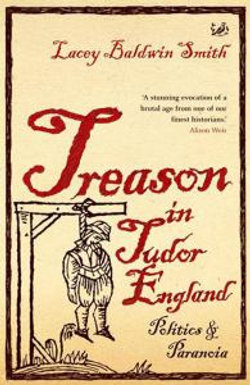

Politics and Paranoia
Publication Date: 01/05/2006
Tudor England abounded with traitors great and small, whose ill-timed, self-defeating and irrational antics guaranteed their failure. Yet from the inept and calamitous intrigues of 'Sweet-Lips' Gregory Botolf in 1540 and Lord Admiral Thomas Seymour during the reign of Edward VI, to the bungling efforts at a palace coup by Robert Devereux, second Earl of Essex, during the final years of Elizabeth's reign, treason didn't prosper. Modern historians tend to dismiss the wave of political disasters as the works of men of unsound mind. Here, Lacey Baldwin Smith re-evaluates this mania for conspiracy in the light of psychological and social impulses peculiar to the age. Tudor England accepted unquestioningly the conspiracy theory of history; it assumed the existence of evil; and it instinctively believed that a greater and usually malicious reality lay behind outward appearance.
- ISBN:
- 9781844135516
- 9781844135516
- Category:
- Politics & government
- Publication Date:
- 01-05-2006
- Language:
- English
- Publisher:
- Random House
- Country of origin:
- United Kingdom
- Dimensions (mm):
- 196.85x127.51x19.05mm
- Weight:
- 0.25kg
Click 'Notify Me' to get an email alert when this item becomes available
Great!
Click on Save to My Library / Lists
Click on Save to My Library / Lists
Select the List you'd like to categorise as, or add your own
Here you can mark if you have read this book, reading it or want to read
Awesome! You added your first item into your Library
Great! The fun begins.
Click on My Library / My Lists and I will take you there
Click on My Library / My Lists and I will take you there
Reviews
Be the first to review Treason in Tudor England.


Share This Book: